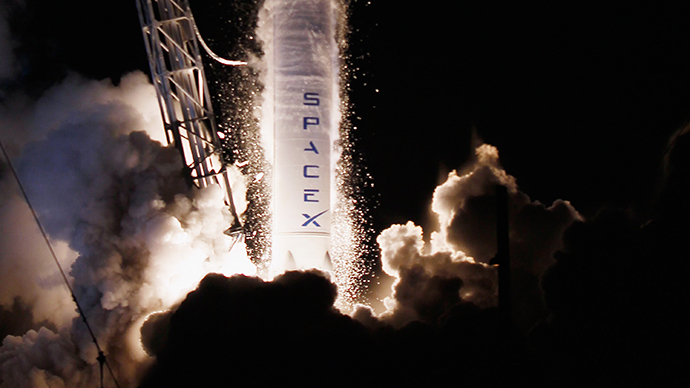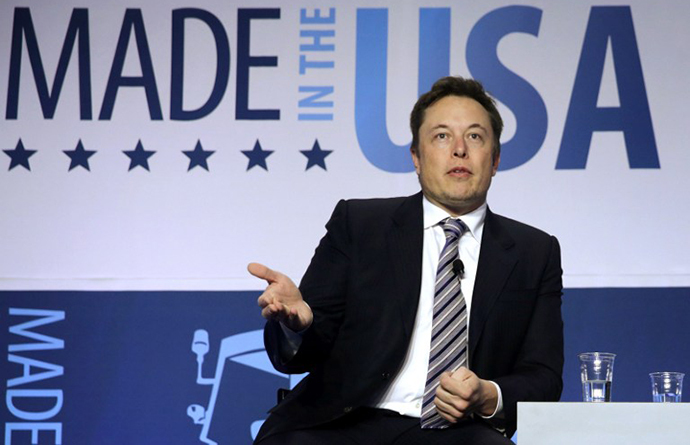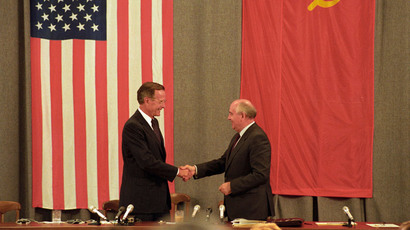SpaceX to challenge US Air Force rocket monopoly, citing Russia sanctions risk

Space Exploration Technologies said it will take legal action against the US Air Force, in an effort to open up competition in the multibillion-dollar satellite launch market, dominated by just two defense contractors.
SpaceX, which has the distinction of being the first private company to send a spacecraft to the International Space Station, hopes to go where no other start-up company has gone before: In a courtroom showdown with the US Air Force, which presently contracts rocket launches to just two defense contractor companies, Lockheed Martin and Boeing.
Elon Musk, the founder and CEO of SpaceX, is looking to the courts to reopen bidding for contracts on rocket cores, contracts for which have been valued at $70 billion through 2030. However, Musk must contend with the so-called United Launch Alliance (ULA), a 50-50 joint venture between Lockheed Martin and Boeing that has no intention of sharing the pie.
“If we compete and lose, that is fine,” Musk told reporters at the National Press Club in Washington. “But why would they not even compete it?”
The American magnate will be going up against some heavy hitters. ULA’s government clients, according to the organization’s website, include “the Department of Defense, NASA, the National Reconnaissance Office and other organizations.”
Last month, Musk gambled on the Ukraine-crisis card, reminding US congressmen that the Lockheed-Boeing (BA) venture relies on Russian-made Atlas V rockets, designed and produced by NPO Energomash, which, the American innovator believes, could be at risk if the political tensions between the two nuclear powers continue.

Moscow and Washington have remained at diplomatic loggerheads since March when the residents of Crimea, following massive anti-government rioting in the capital Kiev, voted in a referendum to join the Russian Federation.
Although Russia’s European trading partners have been lukewarm on the idea, Washington, which has had no small influence of its own on Ukrainian politics, has threatened to impose further sanctions on Russia.
SpaceX said it will file a lawsuit on Monday in an effort to reopen competition for a contract to supply 36 rocket cores, Ian Christopher McCaleb, senior vice president at Levick, a public relations firm representing SpaceX, told Bloomberg.
Musk, who is also chairman and chief executive officer of Tesla Motors, said it is in the interest of the American people that the contract is challenged because the deal between the Air Force and the defense contractors “is costing U.S. taxpayers billions of dollars for no reason.”
Mark Bitterman, a spokesman for ULA, dismissed Musk’s assertions, arguing that the joint venture’s “robust acquisition and oversight process,” together with enhanced technological innovations, actually saved American taxpayers “more than $4 billion” compared with earlier deals.
SpaceX must complete three successful launches, as well as present an overview review of technical details of its technologies, if it hopes to join the competition for military contracts, according to the Air Force.
However, there has been no apparent shortage of funding to get Musk’s space ambitions off the ground.
During a presentation on Friday at the US Export-Import Bank’s annual conference, Musk thanked the financial institution for providing funds. He also mentioned the National Aeronautics and Space Administration (NASA), which awarded SpaceX a $1.6-billion deal to send shipments to the International Space Station.
“NASA’s been fantastic to work with and really has helped us a lot,” Musk told the conference. “In fact, I’m not sure we’d even be where we are today without the help of NASA. We’re very grateful.”














